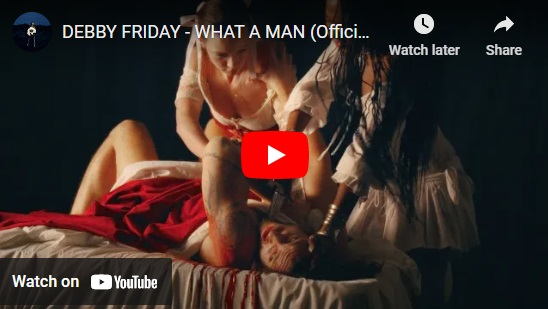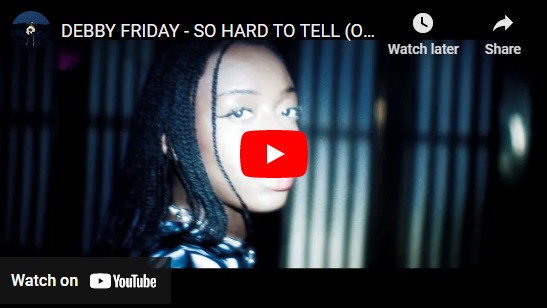There’s a good chance that you’ve never heard a Canadian record quite like Debby Friday’s Good Luck. The Nigerian-born, Toronto-based singer/producer’s debut album is a 33-minute adrenalin rush of modern music fusion, with influences including rave, rap, industrial, alternative, R&B, and hyperpop, to name just a few. Friday’s official bio refers to her as a “zillennial anti-heroine,” and when asked what she calls her style, she offers simply “hybrid.”
Friday herself has a story that’s both typical of many young first-generation Canadians, and unique to her creative mind and vision. She immigrated to Montréal with her parents, where she was educated by Catholic teachers at an all-girls’ school in Westmount and, not much later, the city’s after-hours club scene. While she didn’t grow up dreaming of a music career, she did want to be a writer.
“I was always a very creative child,” says Friday, on the phone from her home, days before embarking on a European tour. “I wrote a lot when I was young, thinking maybe I’ll be an author. But I didn’t have this idea of the arts as a career, because that wasn’t a thing that existed in my upbringing. My parents are very supportive now, but they didn’t have any context for this type of work, or this industry. The younger generation, we have a lot more choices. We can essentially create [our] own career[s], and that’s what I did.”
Good Luck, released on Arts & Crafts in Canada and Sub Pop for the world, follows a series of singles and EPs that established Debby Friday as a new artist to watch – literally. Friday holds a Masters of Fine Art, and her music videos draw on her studies, and passion for visual storytelling. The clip for her single “What a Man” references the infamous 17th Century “rape revenge” painting Judith Slaying Holofernes by Artemisia Gentileschi – one of the only professional female artists of Italy’s Baroque era. She’s also released a surrealist short horror film to accompany the album. Still, Friday says that of all the arts, nothing compares to a song.
“I think music is the greatest connective art because you don’t have to speak the language of the song,” she says. “And a song doesn’t even have to have words in order for you to connect with it, and to connect to other people through it. Like people who are on opposite sides of the globe can have the same feelings elicited within them by hearing a song. I think that’s really beautiful.”
For her full-length debut, Friday explains that she wanted to level-up her songwriting, and her production skills. “I think previously, I was really comfortable with one mode of expression, but this time I wanted to be a little bit more open, more vulnerable. Like, I could just feel that there was something inside of me that was, like, ‘OK, we have to do something different. We have to do something more.’ I listened to that impulse, and I leaned into it.”
Part of that process was working with Graham Walsh, a member of electronic experimentalists Holy Fuck, who’s produced for Operators, Doomsquad, Sam Roberts Band, and co-written with Lights. Friday, who writes, records, mixes and produces her own music, met Walsh through her management, and says he “got it right away.” Her initial 17 songs, mostly written during the pandemic lockdowns, were edited down to 10 short tracks that condense decades of electronic music history into three-minute pop pleasures. And if seductive club tracks like the high-BPM “I Got It” (featuring Chris Vargas of Montreal’s Pelada/Uńas), or the serpentine, Biblical-themed “Let You Down” are brooding explorations of the dark side, a song like “So Hard to Tell” shifts into a beautiful falsetto ballad.
For Friday, her diverse musical explorations are a natural result of growing up in the digital age. “We essentially have an archive of all of human thought and musical history,” she says. “You can pick and choose from that; like, take what works and leave the rest. I do love experimenting. I want to make beautiful things. And we’ve kind of come to this place where everything has become everything else – there’s not necessarily just one context for things now. That’s why I just call it hybrid.”

